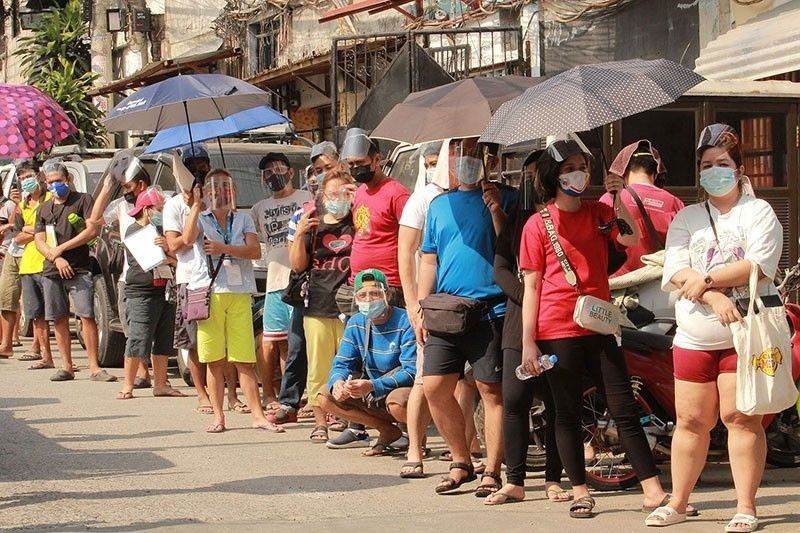PhilSys seen to improve 4Ps cash transfer, beneficiaries urged to register

MANILA, Philippines — There would be no need for beneficiaries registered in the Philippine Identification System (PhilSys) to present physical IDs when claiming future subsidy grants, said a Department of Social Welfare and Development (DSWD) official.
At a July 7 online forum, DSWD Assistant Secretary Rhea Peñaflor gave a bright outlook of the National ID system, which she said would bring “more accurate, efficient and transparent” processes once adopted in all the agency's programs.
The DSWD previously inked an agreement with the Philippine Statistics Authority (PSA) to adopt the PhilSys in identifying and verifying beneficiaries for various social welfare programs.
PhilSys is the government’s central identification platform that was signed into law in August 2018.
A pilot test of the PhilSys was eyed in the Pantawid Pamilya Pilipino Program (4Ps), the country’s flagship safety net program, and the Assistance to Individuals in Crisis Situation (AICS) program until the national ID is gradually integrated into the social welfare agency’s programs over the next three years.
“Basically, it’s a two-step — so if you’re registered for PhilSys already, you are already authenticated. You’re saying who you say you are, so that’s already done, then we will already pay [the eligible],” she said.
Several Filipinos have complained about the prolonged delays in the printing of their National ID cards that aim to eventually replace all other government-issued IDs except the passport, driver’s license and UMID ID.
READ: ‘Where’s mine?’: National ID Twitter trend reminds Filipinos of delays
But more than the card itself, World Bank Senior Economist Yoonyoung Cho said that the PhilSys Number already contains a person’s key information.
“When the PhilSys is adopted by [social amelioration programs] and processes, it can help clean up the database and unify information database,” she said.
Every registered Filipino citizen and resident alien is assigned to a PSN or a randomly generated and unique identification number.
A 2022 World Bank report revealed there were “significant gaps” in the delivery of social protection, as it cited a lack of updated social and beneficiary registries and an operational national ID system.
PhilSys began its registration in October 2020, prioritizing low-income households from 32 provinces. The measure had also been widely criticized for allegations of cybersecurity and questionable procurement.
But as of June 24, 2022, there are nearly 70 million Filipinos registered on the PhilSys platform, said Peñaflor.
Gaps in social amelioration program
When the COVID-19 pandemic hit the Philippines, the national government provided emergency subsidies of up to P8,000 under the Social Amelioration Program (SAP). Some 18 million poor households were covered by the program, including at least 4.4 million beneficiaries from 4Ps.
However, PIDS Vice President Marife Ballesteros said the pandemic exposed “weaknesses and gaps” in the handling of current social protection programs.
“One of the main problems was the delay in the distribution of ayuda due to difficulty in identifying eligible beneficiaries. There also had been reports of ineligible individuals receiving the cash subsidy,” she added.
The government identifies the poor households to benefit from the cash subsidies using the National Household Targeting System for Poverty Reduction or more commonly known as Listahanan.
The first tranche of SAP was manually processed, Cho said, resulting in long queues and delays in cash distribution. While the second tranche used digital cash delivery, Cho added that the insufficient clean beneficiary database likewise delayed the subsidy rollout.
As the COVID-19 pandemic is unlikely to be the last crisis to hit the country, Cho said the government’s response to help poor households “should be swift and fair.”
However, merely distributing relief food packs to Filipinos might not cut it.
“It is very important to shift the main mechanism from untargeted food assistance to targeted cash transfers as soon as the market becomes operational,” Cho added.
- Latest
- Trending

































